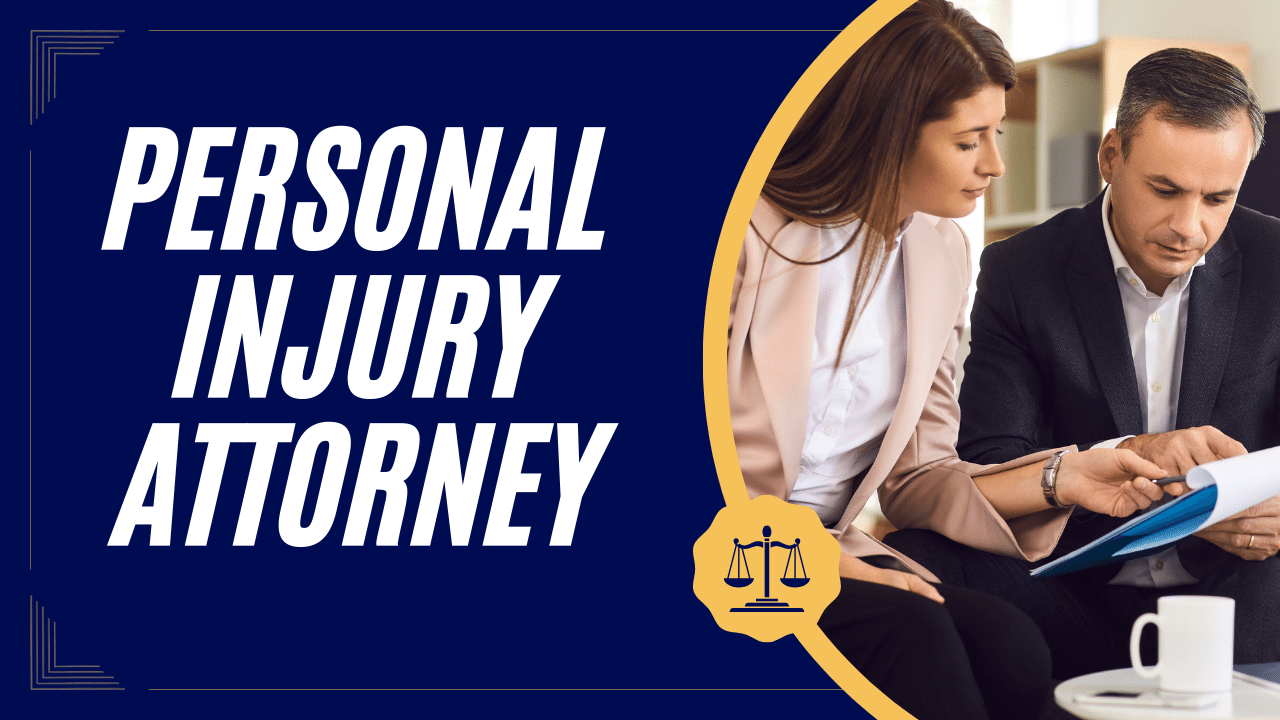Personal Injury Attorney: Your Guide to Seeking Legal Help

Personal Injury Attorney – Personal injury cases can be overwhelming, especially when dealing with physical injuries, emotional distress, and financial burdens. In such challenging times, seeking guidance and representation from a skilled personal injury attorney becomes crucial. These legal professionals specialize in advocating for individuals who have suffered harm due to someone else’s negligence or intentional actions.
Introduction to Personal Injury Attorneys – Defining Personal Injury Law
Personal injury law encompasses situations where an individual sustains harm or injury due to the negligence or misconduct of another party. It covers a wide range of incidents, including accidents, defective products, medical malpractice, and more.
Role of Personal Injury Attorneys
Personal injury attorneys serve as advocates for the injured parties. Their primary goal is to secure fair compensation for their clients by navigating the complex legal processes, negotiating with insurance companies, and representing them in court if necessary.
Types of Personal Injury Cases
1. Car Accidents
Car accidents are one of the most common types of personal injury cases. Attorneys specializing in this area assist victims in seeking compensation for injuries sustained in accidents caused by negligent drivers.
2. Slip and Fall Accidents
Property owners have a responsibility to maintain safe premises. Attorneys help individuals injured in slip and fall accidents due to hazardous conditions pursue compensation for their injuries.
3. Medical Malpractice
Cases involving medical negligence or malpractice require specialized legal expertise. Attorneys in this field work to hold healthcare professionals accountable for errors causing harm to patients.
4. Workplace Injuries
Personal injury attorneys also handle cases related to workplace accidents or injuries caused by unsafe working conditions, ensuring injured workers receive the compensation they deserve.

Key Qualities of a Good Personal Injury Attorney
1. Experience and Expertise
A competent attorney possesses extensive experience in handling various personal injury cases and has a deep understanding of the legal nuances involved.
2. Communication Skills
Effective communication is vital in legal representation. Attorneys who can articulate their clients’ cases clearly and negotiate persuasively often achieve favorable outcomes.
3. Compassion and Empathy
Empathetic attorneys connect with their clients on a personal level, demonstrating genuine concern while navigating the complexities of their cases.
Steps Involved in Hiring a Personal Injury Attorney
1. Initial Consultation
The process typically begins with an initial consultation where the attorney evaluates the case’s merits, discusses legal options, and clarifies the potential outcomes. This meeting allows the client to assess whether the attorney is the right fit for their needs.
2. Case Evaluation and Strategy
After engaging an attorney, a thorough assessment of the case is conducted. A personalized legal strategy is formulated to pursue the best possible outcome, considering the specifics of the incident and applicable laws.
3. Legal Representation and Negotiation
The attorney takes charge of representing the client’s interests, engaging in negotiations with insurance companies or opposing parties to seek a fair settlement. If a settlement cannot be reached, they prepare to advocate in court.
Understanding Compensation in Personal Injury Cases
1. Types of Compensation
Compensation in personal injury cases may cover medical expenses, lost wages, pain and suffering, rehabilitation costs, and more, depending on the circumstances of the case.
2. Factors Influencing Compensation Amount
Several factors influence the compensation amount, such as the severity of injuries, impact on daily life, long-term consequences, and the degree of liability on the part of the responsible party.
Importance of Timely Action in Personal Injury Claims
1. Statute of Limitations
There are specific time limits, known as statutes of limitations, within which a legal action must be initiated. Failing to file a claim within this period could forfeit the right to seek compensation.
2. Gathering Evidence and Documentation
Prompt action in collecting evidence, documenting injuries, and preserving crucial information significantly strengthens the case and enhances the chances of a favorable resolution.
Common Myths and Misconceptions about Personal Injury Attorneys
1. Cost of Hiring an Attorney
Contrary to popular belief, many personal injury attorneys work on a contingency fee basis, meaning they only get paid if they win the case. This arrangement allows access to legal representation without upfront costs.
2. Lengthy Legal Proceedings
While some cases may take time to resolve, skilled attorneys strive to expedite the process while ensuring thoroughness in building a strong case for their clients.
Conclusion
Navigating the complexities of a personal injury case can be daunting. However, seeking guidance from a proficient personal injury attorney can alleviate the burden and significantly increase the likelihood of a favorable outcome.
Frequently Asked Questions (FAQs)
Do I really need a personal injury attorney for my case?
Yes, an attorney can navigate legal complexities and maximize your chances of fair compensation.
How much does hiring a personal injury attorney cost?
Many works on a contingency fee basis, getting paid only if they win your case.
What steps should I take immediately after sustaining a personal injury?
Seek medical help, document the incident, gather evidence, and consult an attorney.
How long does it typically take to resolve a personal injury case?
It varies but can take months to years based on case complexities and negotiations.
Can I switch attorneys if I am not satisfied with the current representation?
Yes, you have the right to change attorneys if you’re not satisfied with representation.

2 Comments